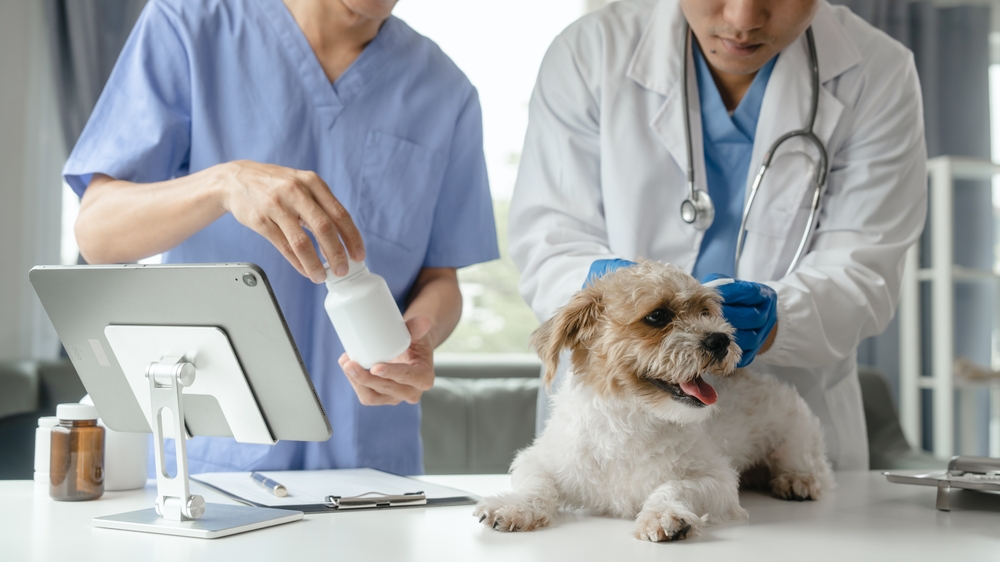Vaccinating your pet is a crucial aspect of responsible pet ownership that ensures their health and well-being. Vaccinations are designed to protect pets from a variety of serious and potentially life-threatening diseases, contributing to a longer, healthier life. Despite the proven benefits, there are several common misconceptions about vaccines, such as the belief that they are unnecessary or even harmful.
A useful statistic to consider is that pets who receive regular vaccinations are significantly less likely to contract diseases like rabies or distemper, potentially saving their lives. Imagine the peace of mind knowing your furry friend is protected from these preventable conditions.
The Basics of Pet Vaccinations
Explanation of What Vaccinations Are and How They Work
Vaccinations are medical preparations that help to build your pet’s immunity against infectious diseases. They work by introducing a harmless component of the pathogen, such as a protein or a weakened/dead form of the virus, into your pet’s body. This triggers the immune system to recognize it as a threat and produce antibodies to fight it off. As a result, if your pet is later exposed to the actual disease, their immune system is primed to respond more effectively, preventing the illness or reducing its severity.
Types of Vaccines: Core vs. Non-Core Vaccines
Pet vaccines are generally classified into two categories: core and non-core vaccines. Core vaccines are considered essential for all pets due to the widespread nature and severity of the diseases they prevent. For dogs, core vaccines typically include those against rabies, distemper, parvovirus, and adenovirus. For cats, core vaccines include those for panleukopenia, feline calicivirus, feline herpesvirus, and rabies.
Non-core vaccines, on the other hand, are recommended based on the pet’s individual risk factors, such as lifestyle, geographical location, and health status. Examples of non-core vaccines for dogs include those for Bordetella (kennel cough), Lyme disease, and canine influenza. For cats, non-core vaccines may include those for feline leukemia virus (FeLV) and Bordetella.
Common Vaccination Schedule for Dogs and Cats
Creating an appropriate vaccination schedule is essential to ensure your pet’s ongoing protection. Puppies and kittens typically receive a series of vaccinations starting at 6-8 weeks of age, with boosters every 3-4 weeks until they are about 16 weeks old. After the initial series, pets usually receive booster shots at one year of age, followed by boosters every one to three years depending on the vaccine and your veterinarian’s recommendations.
It’s important to consult with your vet to tailor a vaccination schedule that best fits your pet’s needs. Regular vet visits and timely vaccinations not only keep your pet healthy but also foster a strong bond between you and your furry companion, as you work together to ensure their well-being.
Health Benefits of Keeping Vaccinations Current
Prevention of Serious Diseases
One of the primary benefits of keeping your pet’s vaccinations current is the prevention of serious and often deadly diseases. Vaccinating your pets protects them from highly contagious and potentially fatal illnesses such as rabies, distemper, and parvovirus. Rabies, in particular, poses a significant threat given its 100% fatality rate once symptoms appear, but it is completely preventable through vaccination.
Similarly, distemper and parvovirus are severe viral infections that can cause severe gastrointestinal, respiratory, and neurological issues in dogs, often leading to death without protection from vaccines. By ensuring your pet receives these essential vaccinations, you are safeguarding their health and longevity.
Protection Against Zoonotic Diseases
Vaccinations not only protect your pets but also offer a critical line of defence against zoonotic diseases—those that can be transmitted from animals to humans. Diseases like leptospirosis and rabies are zoonotic, meaning that an unvaccinated pet could pose a risk to human family members. Rabies, which affects the nervous system, is particularly dangerous, as it can be transmitted to humans through bites or scratches. Keeping your pet’s vaccinations up to date helps mitigate this risk, promoting a safer environment for everyone in the household.
Enhancement of Your Pet’s Overall Immune System
Regular vaccinations play a vital role in enhancing your pet’s overall immune system. When your pet is vaccinated, their immune system is better prepared to recognize and combat infectious diseases. This preparatory action strengthens their natural defenses, making them more resilient to infections. A robust immune system is crucial, especially as pets age or if they have underlying health conditions.
By adhering to a recommended vaccination schedule, you are contributing to the overall well-being and resilience of your pet, ensuring they remain healthy and happy throughout their life.
Regular vaccinations are an integral part of preventive healthcare for all pets. They provide essential protection against serious diseases, reduce the risk of zoonotic transmissions, and bolster your pet’s immunity, helping them lead a healthier, safer life.
Legal and Social Responsibilities
Legal Requirements for Pet Vaccinations
In many regions, there are specific legal requirements for pet vaccinations, particularly concerning rabies. For instance, in the United States, most states mandate that dogs, and often cats, receive rabies vaccinations by a certain age, typically around three to four months.
Subsequent booster shots are required based on state laws, which can range from annually to triennially. These regulations are in place to protect both public health and animal welfare by minimizing the risk of rabies outbreaks, which can be devastating and are nearly always fatal.
Importance of Vaccinations in Promoting Public Health
Vaccinations play a crucial role in promoting public health by preventing the spread of diseases from pets to humans and other animals. Contagious diseases such as rabies, leptospirosis, and parvovirus not only threaten the life of your pet but can also pose significant health risks to humans.
By ensuring that your pets are consistently vaccinated, you contribute to the broader effort of disease control, thereby enhancing the safety and health of the entire community. This communal effort aids in preventing potential epidemics that could arise from unvaccinated animals.
Impact on Pet Socialisation
Keeping your pet’s vaccinations up to date is vital for their socialisation and allows them to safely interact with other animals and participate in various activities. Dog parks, pet-friendly events, and boarding facilities often require proof of vaccinations before allowing pets to enter. Vaccinated pets can enjoy these social opportunities without the risk of contracting or spreading infectious diseases.
Additionally, regular interaction in these environments promotes better behaviour and mental stimulation for your pet, which is crucial for their overall well-being. By maintaining their vaccination schedule, you ensure your pet remains a welcome participant in communal pet spaces, fostering a more active and socially enriched life.
Addressing Common Concerns and Myths
Are Vaccines Safe? Discussing Safety and Side Effects
Concerns about vaccine safety are common among pet owners, yet the overwhelming evidence supports the safety and efficacy of pet vaccinations. Vaccines undergo rigorous testing and must meet stringent regulations before they are approved for use. Most pets experience minimal to no side effects.
Occasionally, some may have mild reactions such as slight fever, lethargy, or tenderness at the injection site, which typically resolve within a day or two. Severe reactions are extremely rare and usually quickly managed with prompt veterinary care. Overall, the benefits of vaccinating your pet far outweigh the risks, as the diseases they prevent are often severe or fatal.
Understanding the Cost-Benefit Analysis of Regular Vaccinations
Regular vaccinations represent a crucial investment in your pet’s health. While there are upfront costs associated with vaccines, they pale in comparison to the potential financial burden of treating preventable diseases. Conditions like parvovirus, distemper, or rabies can result in costly veterinary bills for emergency care, prolonged treatments, and hospitalization. Furthermore, these diseases can have long-lasting health impacts on your pets.
Vaccinations help prevent these expenses and ensure a healthier life for your furry companion. By considering the long-term benefits and the protection vaccines offer, the cost is justified and ultimately economical in safeguarding your pet’s health.
Debunking Common Myths About Pet Vaccinations
Misinformation about pet vaccinations can lead to unnecessary fear and hesitation. One prevalent myth is that vaccinations cause the disease they are meant to prevent. In reality, vaccines use inactivated or weakened forms of pathogens to stimulate the immune system without causing illness. Another common misconception is that indoor pets do not need vaccinations. Even pets that rarely go outside can be exposed to diseases through contact with other animals or contaminated environments.
Lastly, some believe that natural immunity is sufficient to protect their pets. While natural immunity can offer some protection, it is often incomplete and unreliable compared to the immunity provided by vaccination. Dispelling these myths helps pet owners make informed decisions and underscores the importance of keeping vaccinations current.
Tips for Managing Pet Vaccinations
How to Create and Maintain a Vaccination Schedule
Creating and maintaining a vaccination schedule is crucial for ensuring your pet gets the necessary protection. Start by consulting with your veterinarian to establish an initial vaccination plan tailored to your pet’s age, health status, and lifestyle. Your vet will recommend core vaccines, which are essential for all pets, and non-core vaccines, which may be necessary based on your pet’s exposure risks.
Mark these dates on a calendar or set reminders on your phone to keep up with the schedule. Regular veterinary visits for boosters and annual check-ups will help you stay on track, adjusting the schedule as needed based on your pet’s health needs.
Finding a Trusted Veterinarian
A trusted veterinarian is your best ally in managing your pet’s health and vaccination needs. Look for a licensed professional with good reviews and a reputation for compassionate care. You can ask for recommendations from friends, family, or pet owners in your community. It’s also helpful to visit veterinary clinics to meet the staff, assess the facilities, and discuss your pet’s specific needs.
A good veterinarian will take the time to explain the benefits and side effects of vaccinations and answer any concerns you might have, ensuring you feel comfortable and informed about your pet’s healthcare.
Keeping Track of Vaccination Records
Keeping accurate records of your pet’s vaccinations is essential for both legal and health reasons. Most veterinarians provide vaccination certificates that you should store in a safe and easily accessible location. Consider creating a dedicated health folder, either physical or digital, to organize these documents. There are also various pet health apps available that can help you track vaccination dates, upcoming appointments, and health histories.
Keeping detailed records not only aids in ensuring your pet’s vaccinations are up to date but is also useful when enrolling your pet in social activities, traveling, or in the event of a public health enquiry.
Conclusion
In summary, pet vaccinations are a critical component of responsible pet care. They protect your pets from numerous severe and often fatal diseases, prevent the spread of infectious pathogens, and are generally safe with minimal side effects. Regular vaccinations not only save on potential future medical expenses but also ensure your pet can safely enjoy social interactions and communal spaces. By debunking common myths and understanding the long-term cost-benefit analysis, pet owners can make informed decisions about their pet’s health.
We encourage you to consult with your veterinarian to discuss your pet’s specific vaccination needs. Every pet is unique, and a trusted vet can provide a tailored vaccination schedule that suits your pet’s lifestyle and health status. Taking proactive steps now ensures a healthier future for your furry friend.
Call to action: Don’t wait any longer—schedule a vet appointment or review your pet’s vaccination records today. Doing so will give you peace of mind and your pet the protection they deserve.
Additional Resources
Suggested Readings and Guides on Pet Vaccinations
“The Importance of Pet Vaccinations” by Dr. William Smith: A comprehensive guide explaining the science behind vaccines and their importance in maintaining pet health.
“Vaccinating Your Dog & Cat” by The Humane Society: A detailed booklet covering everything from puppy and kitten shots to booster shots for adult pets.
“Preventive Health Care for Small Animals” by the American Animal Hospital Association: Includes a section dedicated to the role of vaccinations in preventive health care.




















